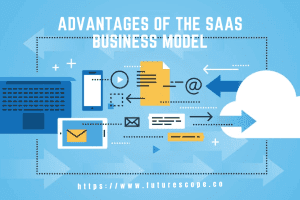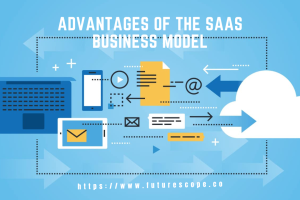What We Have Covered in This Article
Last Updated on April 2, 2023 by Editor Futurescope
Blockchain technology is revolutionizing the way businesses operate, and it has become a hot topic in recent years. With the increasing demand for blockchain-based solutions, starting a blockchain company has become an attractive option for entrepreneurs. However, starting a blockchain company requires more than just having a great idea. It requires a deep understanding of blockchain technology, legal compliance, and strategic planning.
If you’re considering starting a blockchain company, you need to understand the basics of blockchain technology and its potential applications. Blockchain is a decentralized, distributed ledger technology that allows for secure, transparent, and immutable transactions. It has the potential to disrupt various industries, including finance, supply chain management, and healthcare.
In this article, we will provide you with a step-by-step guide on how to start a blockchain company like a pro. We will cover everything from planning your business, registering it properly, and legally compliant to developing a marketable product, accumulating a skilled crew, and creating engaging content. Whether you’re a seasoned entrepreneur or a newbie, this guide will help you start your blockchain company on the right foot.
Understanding Blockchain Technology
Before diving into the process of starting a blockchain company, it’s essential to have a clear understanding of what blockchain technology is and how it works. At its core, blockchain is a decentralized, digital ledger that records transactions in a secure and transparent manner. Each block in the chain contains a unique cryptographic hash that links it to the previous block, creating an unalterable and tamper-proof record of all transactions.
Blockchain technology has several key features that make it an attractive solution for a wide range of industries. These features include:
- Decentralization: Unlike traditional centralized systems, blockchain technology is decentralized, meaning that there is no single point of control or failure. This makes it more resilient to attacks and provides greater transparency and trust.
- Immutability: Once a transaction is recorded on the blockchain, it cannot be altered or deleted. This ensures the integrity of the data and provides a high level of security.
- Transparency: All transactions on the blockchain are visible to all participants, providing a high degree of transparency and accountability.
- Smart Contracts: Smart contracts are self-executing contracts with the terms of the agreement between buyer and seller being directly written into lines of code. They allow for secure and automated transactions without the need for intermediaries.
Blockchain technology has already disrupted several industries, including finance, healthcare, and supply chain management. As the technology continues to evolve and mature, it is expected to have an even greater impact on the way we do business.
Identifying a Problem to Solve
Starting a blockchain company is not just about the technology. It’s about identifying a real problem that can be solved with blockchain. The first step is to do market research and identify a gap in the market that blockchain can fill. This could be a problem that exists in any industry, from finance to healthcare to supply chain management.
Once you have identified a problem, the next step is to validate it. Talk to potential customers and stakeholders to understand their pain points and how blockchain could help solve them. Look for existing solutions and competitors in the market, and figure out what makes your solution unique.
It’s important to keep in mind that not every problem can be solved with blockchain. It’s crucial to understand the limitations of the technology and its potential drawbacks. For example, blockchain may not be the best solution for problems that require real-time processing or high scalability.
Here are some key questions to ask when identifying a problem to solve with blockchain:
- What is the problem we are trying to solve?
- Who are the stakeholders involved?
- What are the pain points and challenges they are facing?
- How can blockchain technology help solve these problems?
- What are the potential drawbacks and limitations of using blockchain?
Creating a Business Plan
Before starting any business, it is essential to have a well-thought-out business plan. A business plan is a detailed document that outlines your business goals, strategies, market analysis, financial projections, and more. Here are some key components to include in your blockchain company’s business plan:
- Executive Summary: This section should provide a brief overview of your business, including your mission statement, target market, products or services, and anticipated growth.
- Market Analysis: Conduct thorough research on the blockchain industry, including market trends, competition, and potential customers. Identify your target market and their needs, and explain how your business will meet those needs.
- Products and Services: Describe the blockchain products or services your company will offer and how they will benefit your customers. Include any unique selling points or competitive advantages.
- Marketing and Sales: Explain how you will promote and sell your products or services, including your pricing strategy, advertising methods, and sales channels.
- Financial Projections: Provide detailed financial projections, including revenue, expenses, cash flow, and profit margins. Use realistic assumptions based on market research and industry trends.
- Management Team: Introduce your management team and their qualifications, including any relevant experience in the blockchain industry.
- Risk Analysis: Identify potential risks and challenges that your business may face, such as regulatory changes, security breaches, or market fluctuations. Explain how you will mitigate these risks and ensure the long-term success of your business.
Creating a business plan may seem daunting, but it is a crucial step in starting a successful blockchain company. Take the time to research your market, analyze your competition, and identify your target audience. Use your business plan as a roadmap to guide your company’s growth and success.
Building a Strong Team
Building a strong team is crucial for the success of any blockchain company. Here are some key considerations when building your team:
- Identify the necessary skill sets: Determine the specific skills and expertise required for your project. This may include blockchain development, smart contract programming, cryptography, cybersecurity, marketing, and legal expertise.
- Look for experienced professionals: Seek out individuals with a proven track record in the blockchain industry. Experienced professionals can bring valuable insights and knowledge to your team.
- Assess cultural fit: It’s important to ensure that team members share the same values and work ethic. This can help foster a positive and productive work environment.
- Encourage diversity: A diverse team can bring different perspectives and ideas to the table. Consider hiring individuals from different backgrounds and experiences.
It’s also important to establish clear roles and responsibilities for each team member. This can help prevent confusion and ensure that everyone is working towards the same goals. Regular communication and collaboration are also key to building a strong team.
Remember, building a strong team takes time and effort. Don’t rush the hiring process and take the time to find the right individuals for your company. With a strong team in place, your blockchain company will be well-positioned for success.
Fundraising and Investment
Starting a blockchain company requires significant capital, and fundraising is an essential step towards achieving that goal. Here are a few ways to raise funds for your blockchain startup:
- Bootstrapping: This is the most hassle-free way to fund your blockchain startup venture. Blockchain projects are often in a position to pool funds together to get the project off the ground.
- Incubators: One way to get blockchain seed funding and additional support is to find incubators that focus on blockchain-based startups. These incubators are willing to cooperate with entrepreneurs who only have ideas.
- Accelerators: Accelerators want a bit more than just an idea. They are there to boost your startup and provide mentorship, resources, and connections. Graduating from a blockchain accelerator shows investors that your startup has passed the litmus test for investability.
- Initial Coin Offering (ICO): An ICO is a fundraising method that allows blockchain startups to raise capital by selling their cryptocurrency tokens to investors. This method has been popular in the blockchain industry, but it is important to note that ICOs are highly regulated and can be risky.
When it comes to investment, investors want to see a clear business plan, a strong team, and a unique value proposition. Here are a few tips to attract investors:
- Focus on your niche: Investors are more likely to invest in a startup that has a clear and specific focus. Identify your target audience and tailor your pitch accordingly.
- Build a strong team: Investors want to see a team that has the necessary skills and experience to execute the business plan. Make sure to highlight the strengths of your team in your pitch.
- Be transparent: Investors want to know how their money will be used and what their return on investment will be. Be transparent about your plans and projections.
- Network: Attend industry events and conferences to meet potential investors and partners. Building relationships is key to securing investment.
Developing a Minimum Viable Product
Developing a Minimum Viable Product (MVP) is an essential step in starting a blockchain company. An MVP is a basic version of your blockchain application that only includes the core features and functionality. It is designed to test your blockchain application idea and gather feedback from potential users before investing significant resources into development.
Here are some steps to follow when developing an MVP for your blockchain company:
- Identify the core features: Identify the core features of your blockchain application that are essential to its functionality. Focus on the features that provide the most value to your users.
- Design the user interface: Design a simple user interface that is easy to use and understand. The user interface should be intuitive and provide a smooth user experience.
- Build a prototype: Build a prototype of your MVP to test the core features and user interface. The prototype should be functional and allow users to interact with the blockchain application.
- Test with potential users: Test your MVP with potential users and gather feedback on the core features and user interface. Use this feedback to improve the MVP and make necessary changes.
- Iterate and improve: Use the feedback from potential users to iterate and improve your MVP. Add new features and functionality based on user feedback and continue to test and gather feedback.
Developing an MVP is a critical step in starting a successful blockchain company. By focusing on the core features and user interface, building a prototype, testing with potential users, and iterating and improving, you can create an MVP that provides value to your users and sets your blockchain company up for success.
Launching and Scaling Your Company
Once you have defined your value proposition, identified your target market, and developed your product, it’s time to launch your blockchain startup. Here are some tips to help you launch and scale your company like a pro:
- Build a strong team: Your team is the backbone of your company. Hire talented individuals who are passionate about your vision and can help you achieve your goals.
- Secure funding: Whether it’s through venture capital, angel investors, or crowdfunding, securing funding is crucial to launching and scaling your company. Make sure you have a solid business plan and pitch deck to attract investors.
- Network and collaborate: Attend industry events and conferences to network with other blockchain professionals. Collaborate with other companies and organizations to expand your reach and increase your impact.
- Stay up-to-date: The blockchain industry is constantly evolving. Stay informed about the latest trends and developments to ensure that your company stays ahead of the curve.
Scaling your company can be just as challenging as launching it. Here are some additional tips to help you scale your blockchain startup:
- Automate processes: Automating routine tasks can save time and increase efficiency. Consider using blockchain-based solutions to automate processes such as supply chain management or identity verification.
- Expand your product line: Once you have established a strong customer base, consider expanding your product line to meet their evolving needs.
- Invest in marketing: Marketing is crucial to scaling your company. Develop a strong brand identity and invest in targeted advertising campaigns to reach your target audience.
- Monitor your metrics: Keep track of key metrics such as customer acquisition cost and customer lifetime value to ensure that your company is on track to meet its goals.
Launching and scaling a blockchain startup is no easy feat, but with the right strategy and mindset, you can achieve success. By building a strong team, securing funding, networking and collaborating, staying up-to-date, and following these additional tips for scaling your company, you can take your blockchain startup to the next level.









